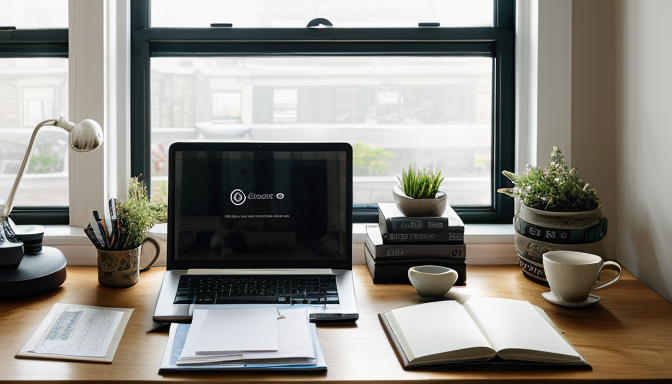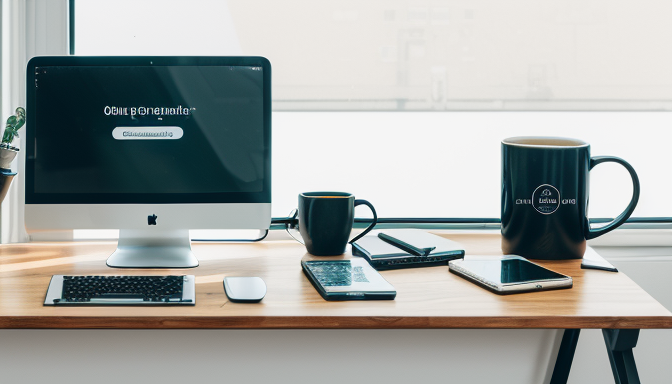In today’s fast-paced world, it’s hard to deny that our digital lifestyle plays a pivotal role in shaping our daily routines. From the moment we wake up to the sound of our smartphones buzzing with notifications, to the late-night scroll through social media feeds, technology is woven into the fabric of our lives. But have you ever stopped to think about how this constant connectivity is affecting you?
Think about it: are you truly engaged in your life, or are you merely a spectator, glued to a screen? The allure of social media can often pull us into a vortex of distraction, where we lose track of time and miss out on meaningful interactions. The reality is, while technology offers incredible opportunities for connection and productivity, it can also lead to feelings of isolation and overwhelm.
Moreover, the rise of remote work has blurred the lines between our professional and personal lives. Have you noticed how difficult it is to “switch off”? The pressure to stay connected can lead to burnout, impacting both our mental and physical health. To illustrate this, consider the following table that highlights some common effects of excessive screen time:
| Effect | Description |
|---|---|
| Eye Strain | Prolonged exposure can lead to discomfort and vision problems. |
| Sleep Disruption | Blue light emitted from screens can interfere with sleep patterns. |
| Reduced Productivity | Constant notifications can fragment attention and decrease efficiency. |
So, is your digital lifestyle holding you back? The answer might just lie in finding a balanced approach to technology. By recognizing the impact of our habits, we can take steps to reclaim our time and focus, ultimately enhancing our overall well-being.
The Impact of Screen Time
In today’s fast-paced world, our lives are increasingly intertwined with technology. From scrolling through social media during our morning coffee to attending virtual meetings for work, screen time has become a staple of our daily routines. But have you ever stopped to consider how this constant connection is shaping not just our productivity, but also our overall well-being? Studies suggest that excessive screen time can lead to a variety of negative health effects, both physically and mentally.
For instance, prolonged exposure to screens can result in issues such as eye strain, poor posture, and even sleep disturbances. Imagine trying to drift off to sleep after binge-watching your favorite series—your mind is racing, and your body is still buzzing from the blue light emitted by your devices. This cycle can become a barrier to achieving optimal health and productivity.
Moreover, the psychological impacts are equally alarming. Many individuals find themselves feeling overwhelmed or anxious due to the constant influx of information and notifications. It’s as if we’re on a never-ending treadmill, running but getting nowhere. To truly understand the impact of screen time, let’s take a closer look at some key statistics:
| Effect | Percentage of Users Affected |
|---|---|
| Eye Strain | 70% |
| Sleep Issues | 60% |
| Anxiety | 50% |
So, what does this mean for you? Understanding these impacts is the first step in making informed choices about your digital consumption. By recognizing how technology shapes our daily lives, from social media to remote work, we can begin to carve out a healthier balance in this tech-driven world.

Strategies for Digital Balance
In today’s fast-paced world, technology is woven into the very fabric of our daily lives. From the moment we wake up to the sound of our smartphones buzzing with notifications to the late-night scroll through social media, it often feels like we’re living in a digital whirlwind. But here’s the kicker: while technology can enhance our lives, it can also hold us back if we let it spiral out of control. So, how can we reclaim our time and find that elusive balance?
First off, it’s crucial to set boundaries. Just like you wouldn’t allow a friend to talk over you constantly, don’t let your devices dictate your time. Consider implementing a digital curfew. For instance, designate specific hours where you unplug from all screens. This not only helps your mind unwind but also improves your sleep quality. You might be surprised at how rejuvenating a tech-free evening can be!
Next, prioritize your tasks. Use technology to your advantage by employing productivity apps that help you focus on what truly matters. A great way to do this is by creating a daily schedule that includes time blocks for work, leisure, and even social media. Here’s a simple table to illustrate how you can structure your day:
| Time | Activity |
|---|---|
| 7:00 AM – 8:00 AM | Morning Routine (no screens) |
| 8:00 AM – 12:00 PM | Focused Work |
| 12:00 PM – 1:00 PM | Lunch Break (tech-free) |
| 1:00 PM – 5:00 PM | Work and Meetings |
| 5:00 PM – 7:00 PM | Exercise or Hobbies |
| 7:00 PM – 10:00 PM | Family Time / Relaxation |
Lastly, don’t forget to practice mindfulness. Take a moment each day to reflect on your digital habits. Are they serving you, or are they just filling time? By being aware of your screen time and its effects, you can make smarter choices that align with your goals. Remember, technology should work for you, not the other way around!
Frequently Asked Questions
- How does excessive screen time affect my health?
Excessive screen time can lead to a variety of health issues, including eye strain, poor posture, and even anxiety or depression. It’s like staring at a bright light for too long; eventually, it can hurt your eyes and mood!
- What are some effective strategies for reducing screen time?
To cut down on screen time, try setting specific limits for daily usage, taking regular breaks, and engaging in offline activities like reading or exercising. Think of it as a digital detox – your mind and body will thank you!
- Can technology actually improve my productivity?
Absolutely! When used wisely, technology can streamline tasks, enhance communication, and keep you organized. It’s all about finding the right balance – think of it as using a tool: it can help you build, but only if you know how to wield it!
- How do I know if I’m spending too much time online?
If you find yourself constantly checking your phone or losing track of time while browsing, it might be time to reassess. Keep an eye on your habits; if they start to feel overwhelming, it’s a sign to take a step back.
